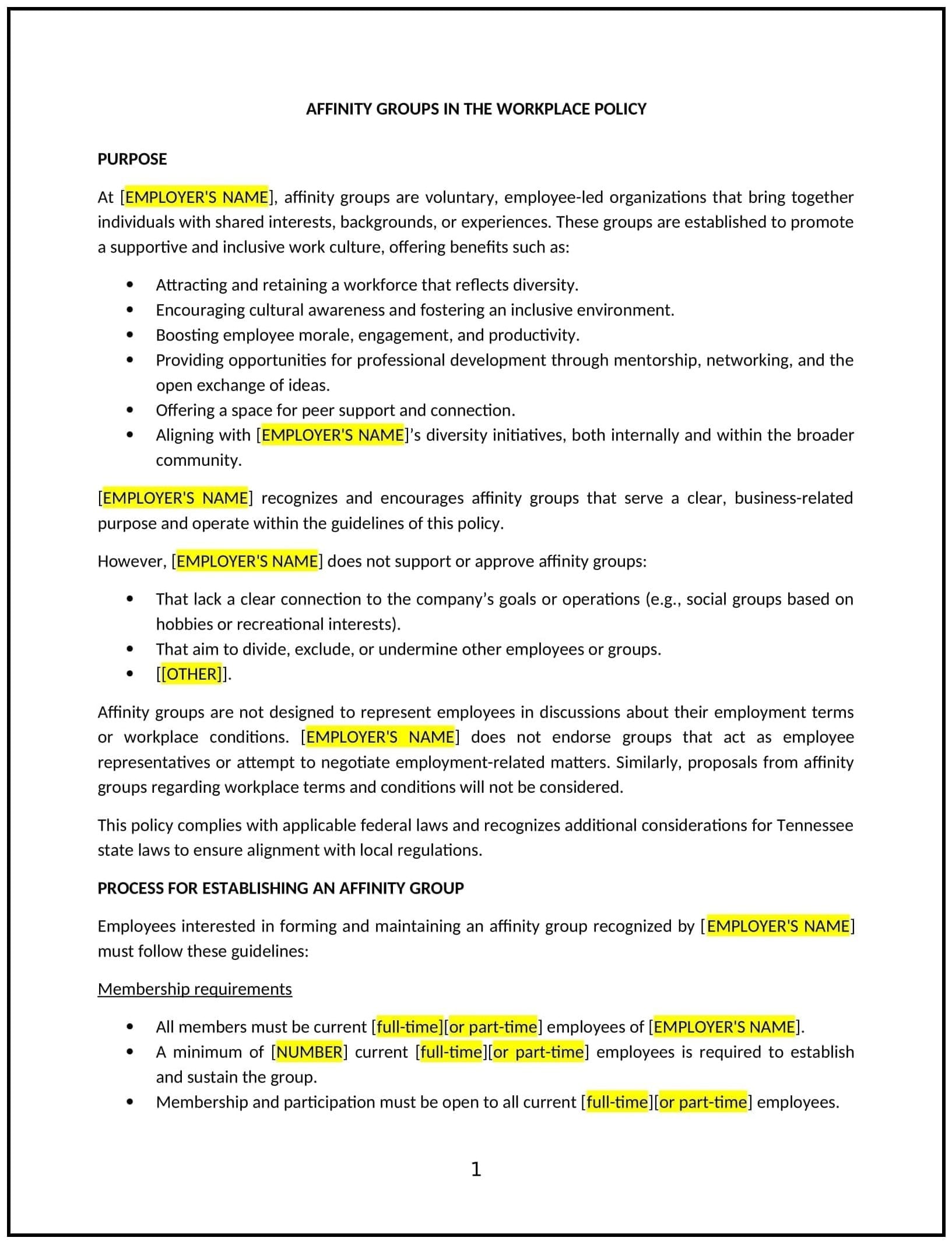Affinity groups in the workplace policy (Tennessee): Free template
Got contracts to review? While you're here for policies, let Cobrief make contract review effortless—start your free review now.

Customize this template for free
Affinity groups in the workplace policy (Tennessee)
This affinity groups in the workplace policy is designed to help Tennessee businesses create guidelines for supporting employee-led groups based on shared interests, backgrounds, or goals. It outlines procedures for forming, managing, and participating in affinity groups while maintaining a professional work environment.
By adopting this policy, businesses can foster inclusivity, enhance employee engagement, and promote a positive workplace culture.
How to use this affinity groups in the workplace policy (Tennessee)
- Define affinity groups: Clarify what constitutes an affinity group, such as groups based on gender, ethnicity, hobbies, or professional interests.
- Set formation procedures: Provide steps for employees to form affinity groups, including approval processes and required documentation.
- Outline participation guidelines: Explain how employees can join or leave affinity groups and the expectations for participation.
- Address resource allocation: Specify whether the business will provide resources, such as meeting spaces or funding, to support affinity groups.
- Ensure alignment with business goals: Emphasize that affinity groups should align with the business’s values and objectives.
- Train managers: Educate supervisors on supporting affinity groups and maintaining a professional work environment.
- Review and update: Assess the policy annually to ensure it aligns with evolving business needs and workplace dynamics.
Benefits of using this affinity groups in the workplace policy (Tennessee)
This policy offers several advantages for Tennessee businesses:
- Fosters inclusivity: Encourages employees to connect and share experiences, promoting a sense of belonging.
- Enhances employee engagement: Provides opportunities for employees to collaborate and contribute beyond their regular roles.
- Promotes a positive workplace culture: Demonstrates a commitment to diversity, inclusion, and employee well-being.
- Attracts and retains talent: Makes the business more appealing to a diverse workforce.
- Aligns with modern workplace trends: Keeps businesses competitive by embracing inclusive practices.
Tips for using this affinity groups in the workplace policy (Tennessee)
- Communicate the policy: Share the policy with employees and include it in the employee handbook.
- Provide training: Educate managers on supporting affinity groups and maintaining a professional work environment.
- Monitor compliance: Regularly review affinity group activities to ensure alignment with the policy.
- Address issues promptly: Take corrective action if affinity groups create conflicts or disruptions.
- Update regularly: Assess the policy annually to ensure it aligns with evolving business needs and workplace dynamics.